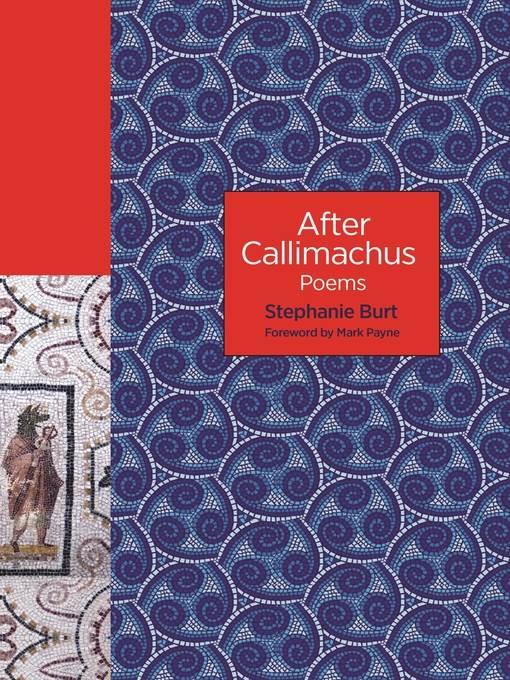
After Callimachus
Poems
کتاب های مرتبط
- اطلاعات
- نقد و بررسی
- دیدگاه کاربران
نقد و بررسی

Starred review from March 16, 2020
The delightful fifth book from poet and critic Burt (Advice from the Lights) brings the ancient poet Callimachus, respected by later Greeks and Romans, to 21st-century audiences. Burt’s contemporary translations and adaptations musically and playfully build on Callimachus’s themes. Love, desire, tyranny, and death, meet technology, pop music, bigotry, and politics. Epigrams ignite with political urgency as they meet contemporary narratives: “Every time I go home there’s a monument/ to a man whose culpable indifference/ sent my peers to their early graves,/ a glib smiler, a bad dad who deserves infamy” (“Epigram 8”). Burt finds pathos in parallels, expanding the world of the ancient Greeks in unexpected ways: “As in Hamlet, but harmless,/ I put the ear-infection medicine drop/ by drop into my baby’s ear./ Then my baby awoke. The horses of Poseidon/ did not thrash so hard,/ nor did the god of the sea feel half so helpless,/ nearly choked with pointless fear.” Burt engages deeply and originally with Callimachus, and the result is a wonderfully rich collection that reveals how the past can cast new light on the present.

April 1, 2020
Although little is known today except through fragments of his work, the Greek writer Callimachus (about 300 BCE) was considered a master poet and innovator who often reinvented the past by putting himself and his contemporary circumstances into poems (something frowned on at the time). Burt (Close Calls with Nonsense) reinvents Callimachus's poems through cuts, expanded metaphors, new metaphors, and the addition of her personal and contemporary circumstances. A poet, critic, Harvard professor, and trans activist, Burt is something of a shape-shifter, as are the poems in this collection. In an "Imitator's Note," she says she wants to create a new Callimachus, "one who feels close to the Greek original and like a fresh, coherent, wise, entertaining, and...humorous poet." These poems are mostly short epigrams with a few hymns to the gods--the longest (and weakest) poem being a hymn to Artemis, the girl god. Another poem comments on losing a friend's laptop and turns into a hymn thanking Hermes for finding it although it took a long time. VERDICT According to this collection's foreword, Callimachus never found his ideal translator--until now. Definitely. For all academic libraries.--C. Diane Scharper, Johns Hopkins Univ., Baltimore, MD
Copyright 2020 Library Journal, LLC Used with permission.

























دیدگاه کاربران